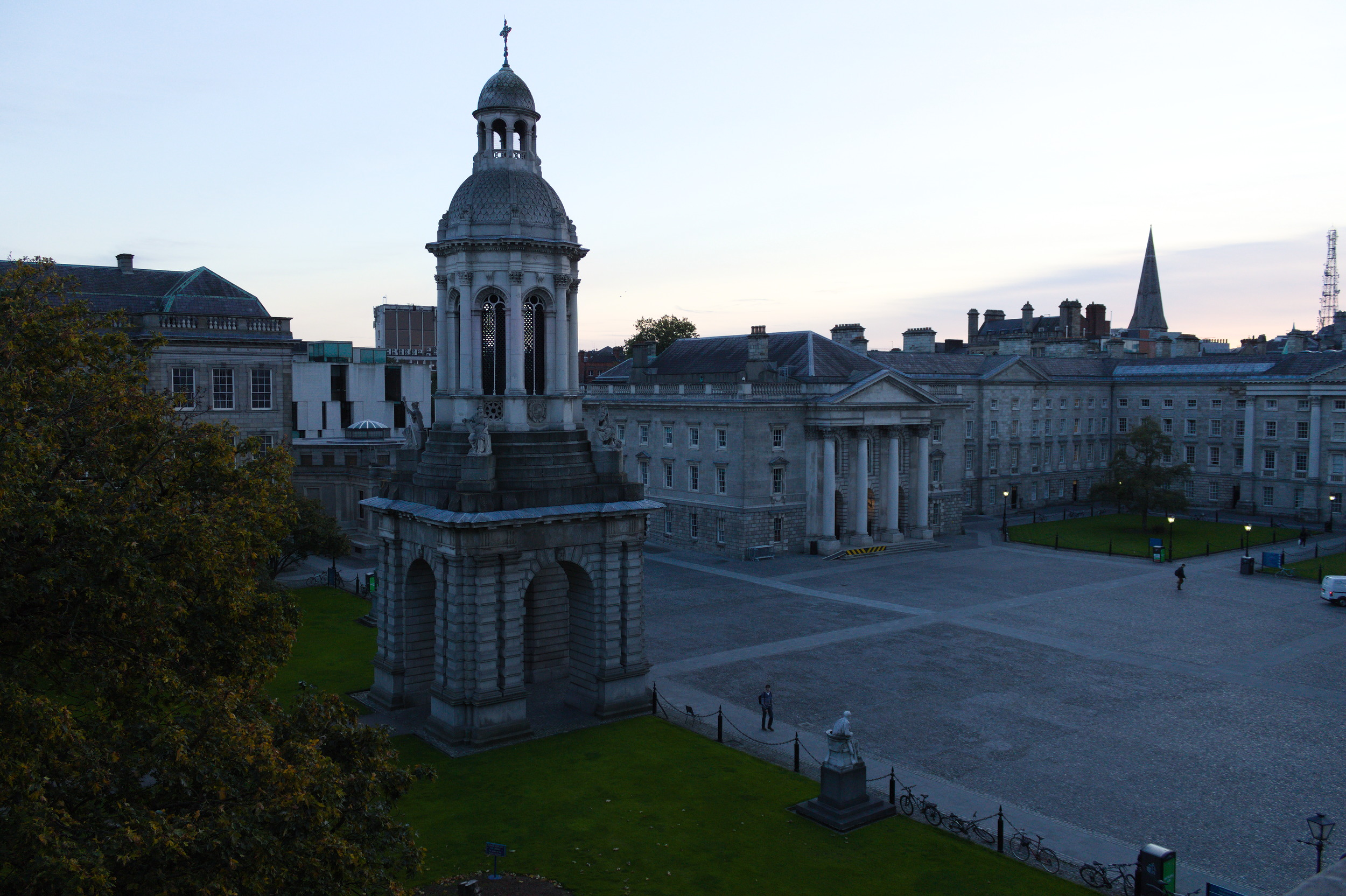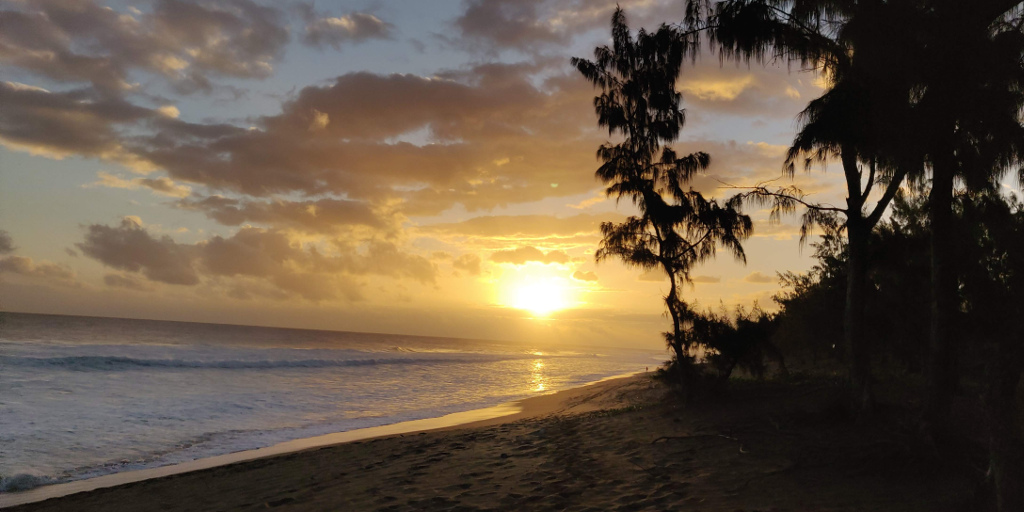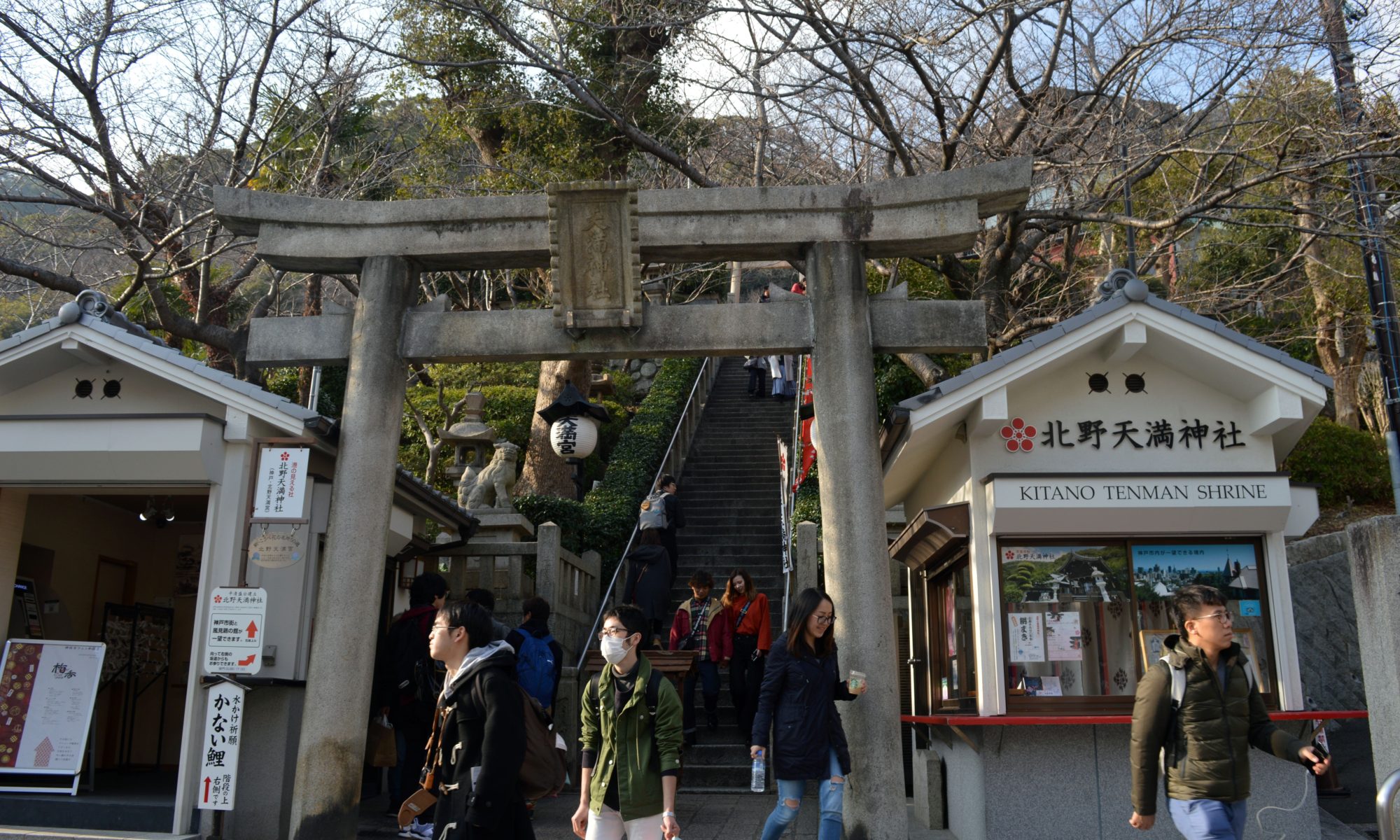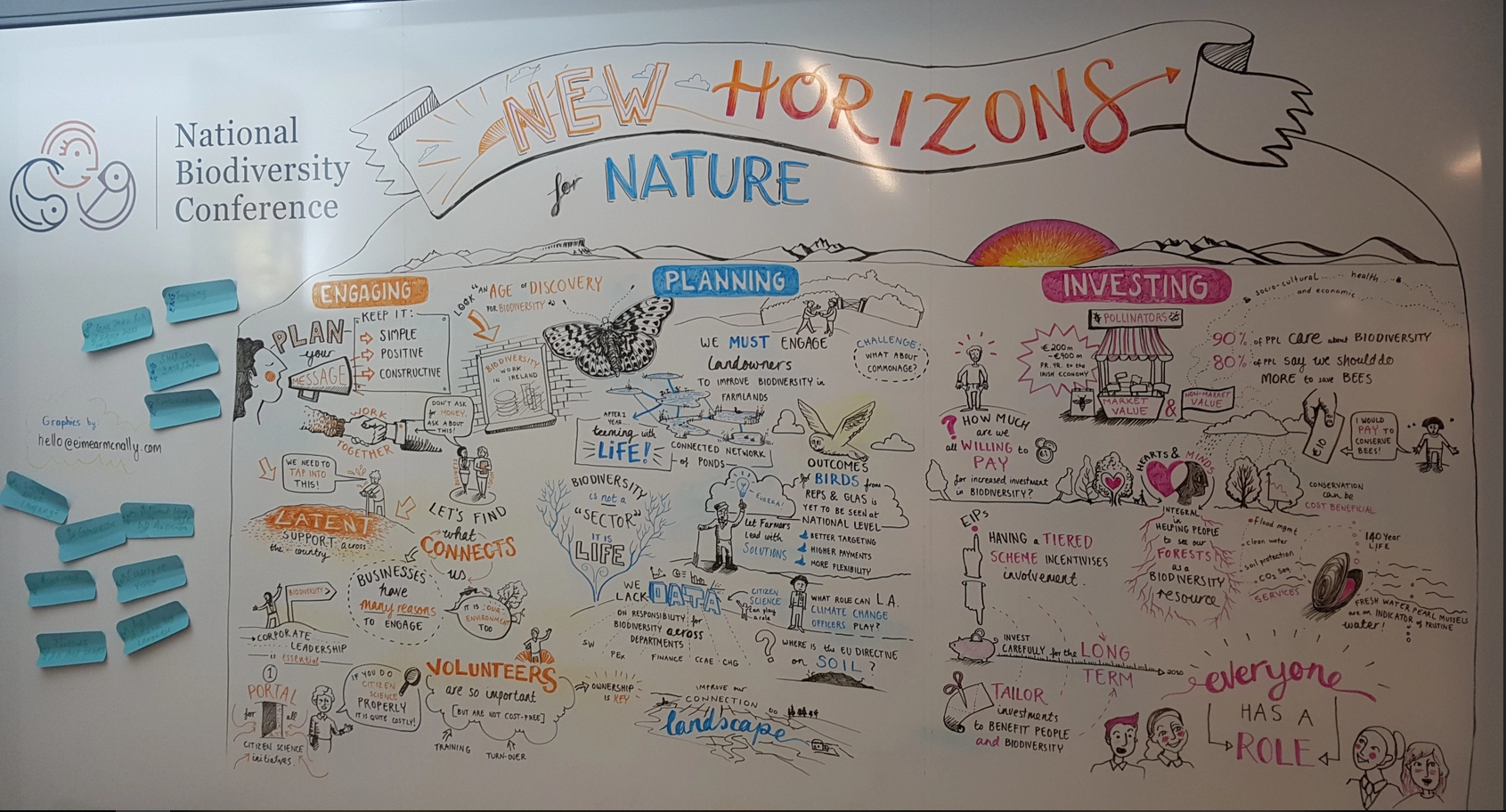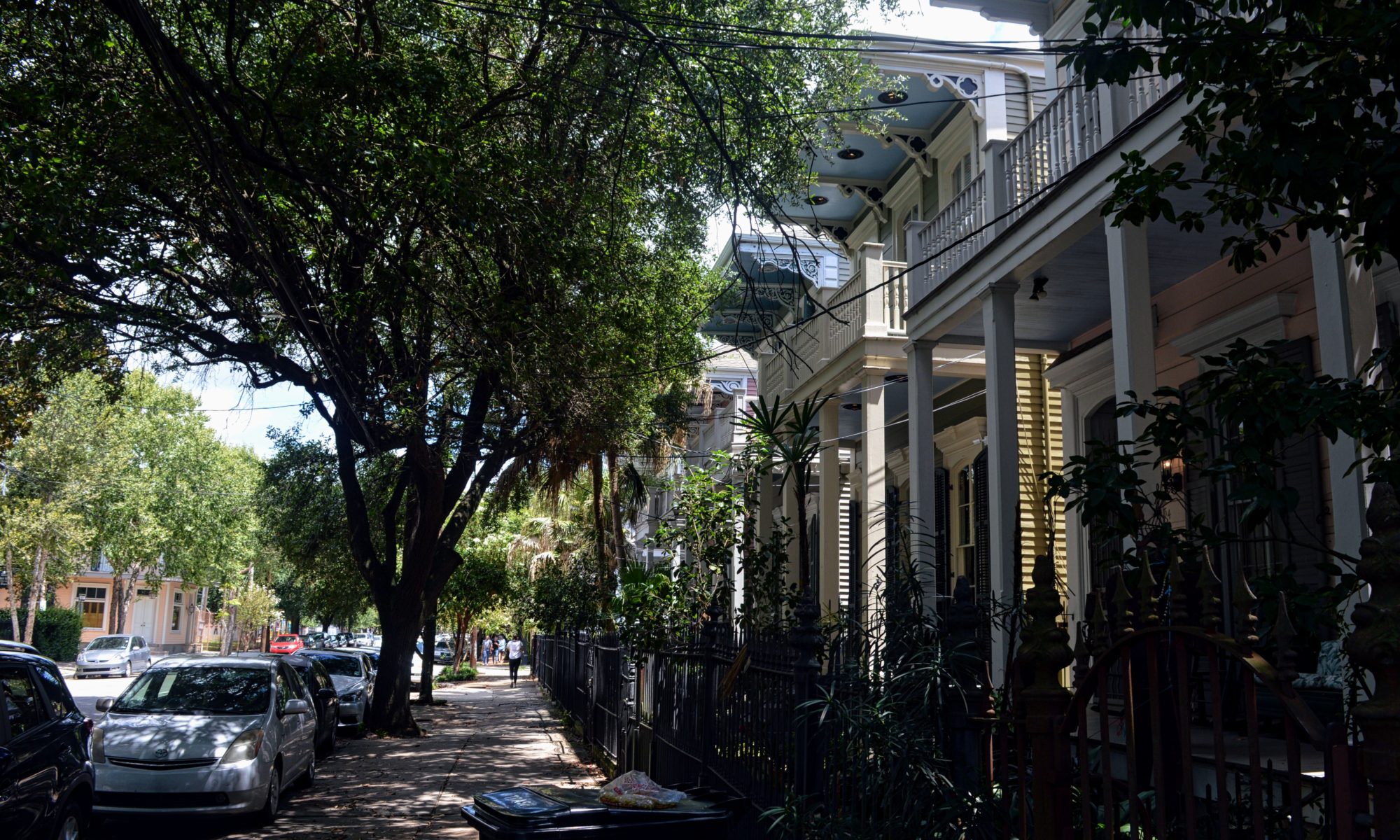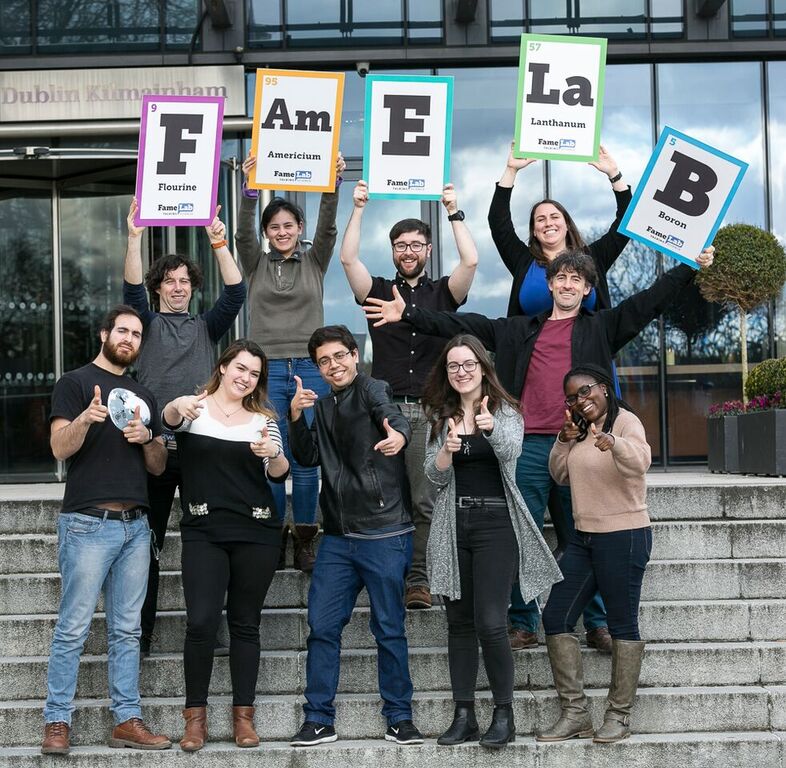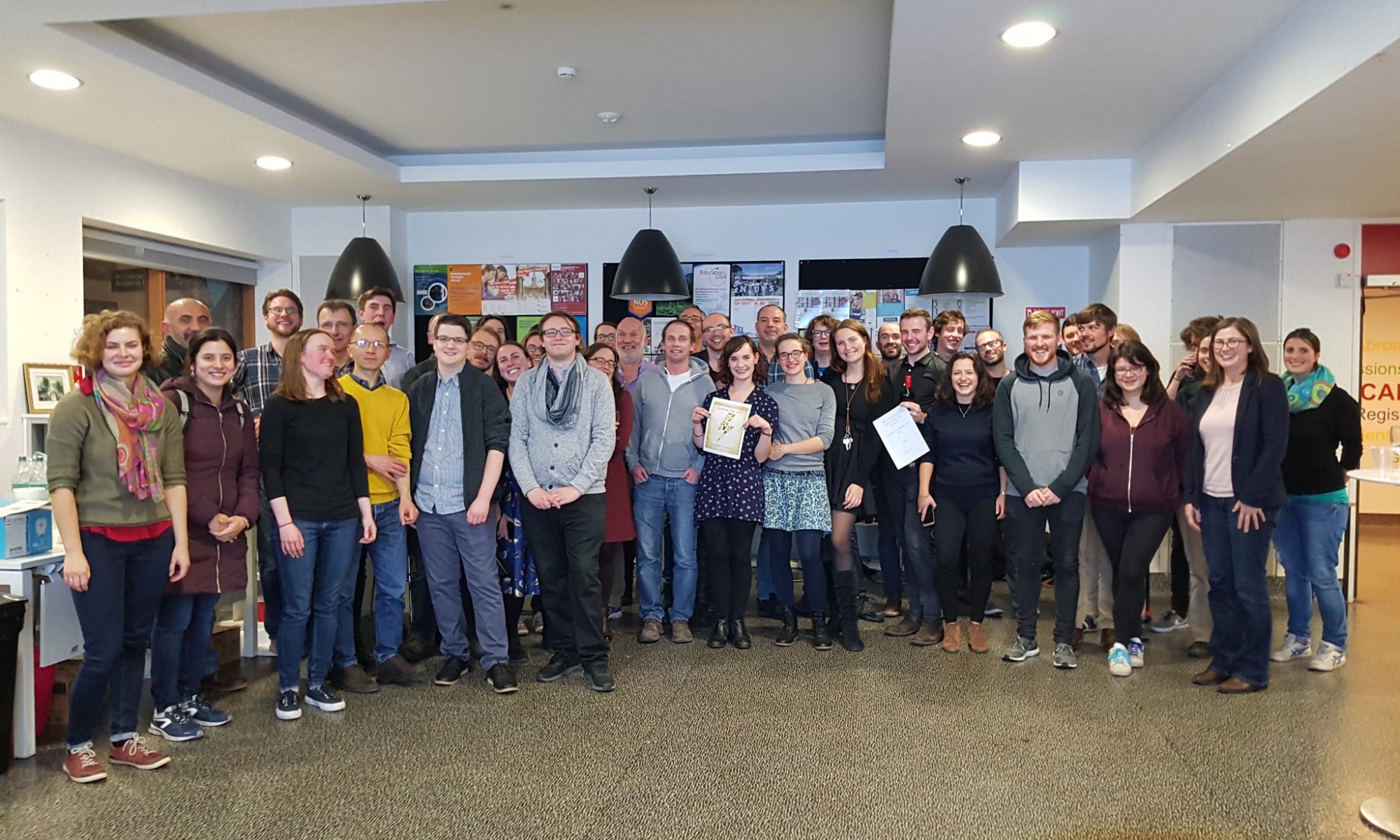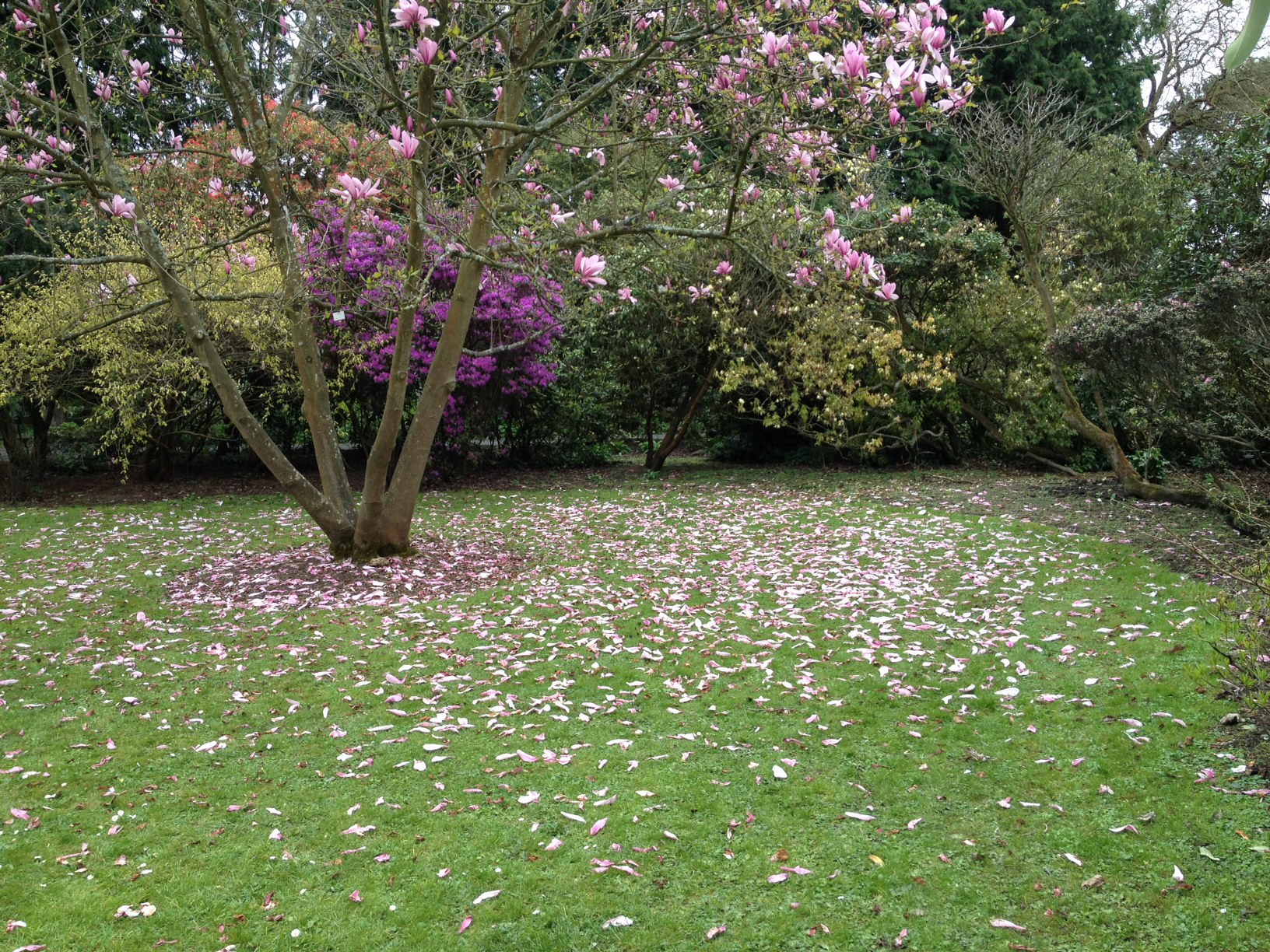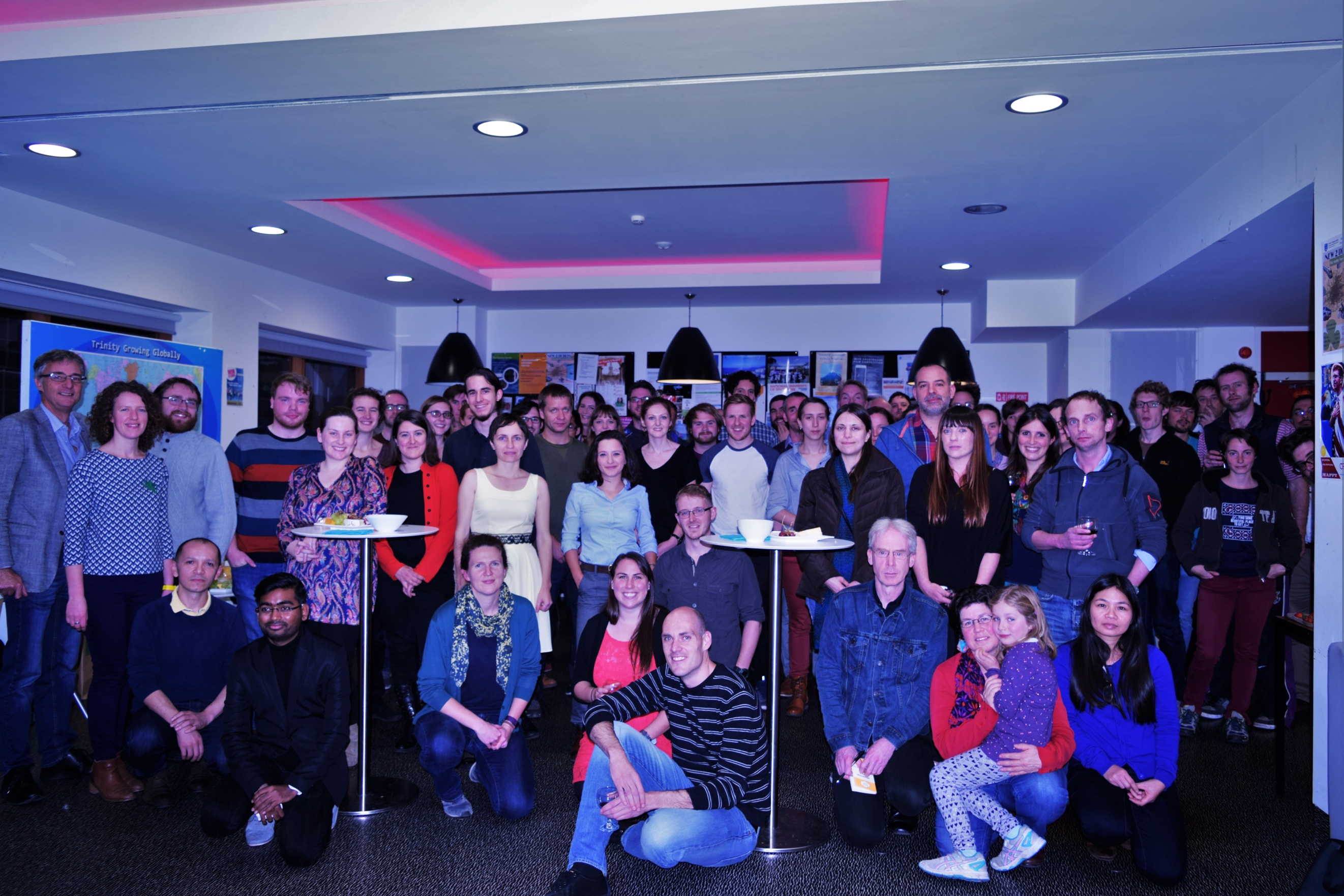Last month the Botany and Zoology departments at Trinity held their annual Postgraduate Symposium. Research students from both departments present a talk on recent and upcoming projects for their thesis, and the whole event is run by the students themselves. This is a big event for Botany/Zoology postgraduates not just because they get to show off their work and discoveries to the college community – it’s also great practice for future events, and students receive feedback on their presentations both from other postgraduates and from lecturers and professors in the two departments. Developing your ability to communicate your research is a crucial skill for all scientists. After all, what’s the point in discovering things about the natural world if you can’t share that knowledge!
Continue reading “Interview with the Speakers of the 2021 Botany/Zoology Postgrad Symposium”A Happy Réunion at the Island Biology Conference 2019
Island biologists often work in beautiful and interesting places. It seems only fitting that when they meet up to discuss their work, they do it somewhere like Réunion, a volcanic oceanic island in the Indian Ocean, administered as a French department and the site of the 2019 Island Biology conference. Armed with my Junior Cert level French, I made the journey to discuss my PhD project on the birds of Sulawesi and the work of the TCD Biogeography Working Group.
Continue reading “A Happy Réunion at the Island Biology Conference 2019”ESJ 66: Best in Show
This was my first time in Kobe, famous for its beef and cheesecake. Much of the city was rebuilt in the wake of a devastating earthquake that claimed the lives of more than six thousand people in 1995. The city mascot is Kobear (コーベア), a pun almost as clever as the bear is cute. The conference centre was a vertical maze of meeting rooms and halls, with signs in Japanese and an army of concierges attempting to funnel us towards our venue of choice.
I had met Dr. Maria Dornelas at the entrance hall on day one and introduced her to Yuka Suzuki. I’ve known Yuka for a couple of years at this point, but we had never worked on anything together until this conference. Yuka and I had been chosen to organise a symposium at the Ecological Society of Japan’s 2019 annual meeting (ESJ 66), an honour not often given to such early career researchers. The ESJ meetings do not have plenary speakers, meaning that the few invited speakers that headline organised symposia act as the big draw. So, the pressure was on for us to deliver a symposium that people would find interesting and inspiring.
Read the full post on Sam’s blog, The Infrequent Musings of an Early-Career Ecologist!
Or read his award-winning paper here:
Ross SRP-J, Friedman NR, Dudley KL, Yoshimura M, Yoshida T, Economo EP. (2018). Listening to ecosystems: data rich acoustic monitoring through landscape-scale sensor networks. Ecological Research 33(1), 135-147. DOI: 10.1007/s11284-017-1509-5
A New Horizon for Nature
This week saw the first National Biodiversity Conference in Ireland at Dublin Castle – an incredible joint effort between the National Parks and Wildlife Service of the Department of Culture, Heritage and the Gaeltacht and the Irish Forum on Natural Capital to engage people in nature. The conference aimed to get all relevant parties in the room to progress biodiversity conservation and restoration in Ireland.
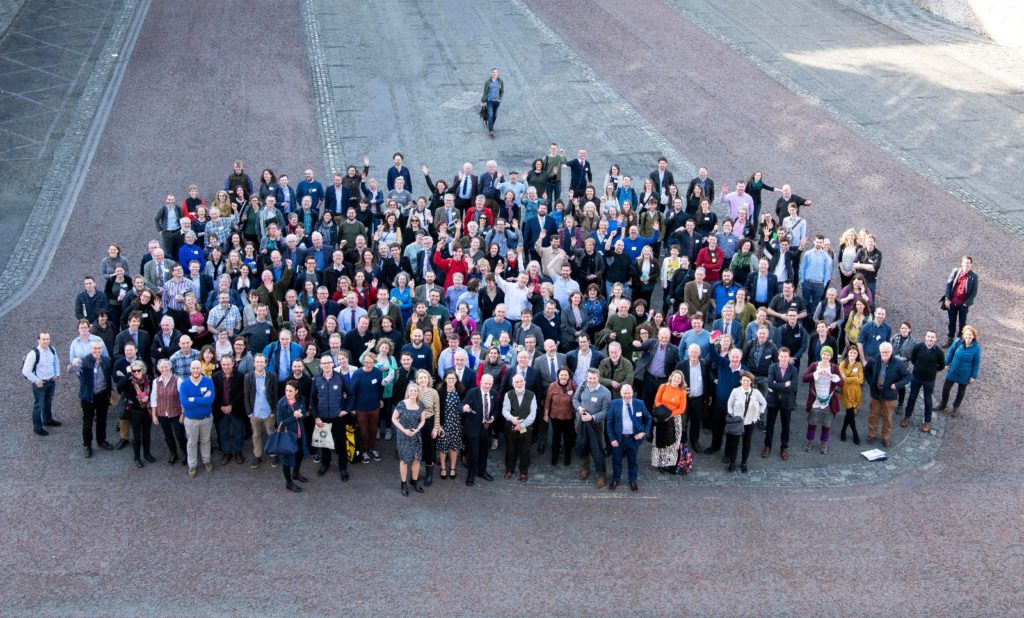
The conference opened with a powerful short film by Crossing the Line Productions “This is Ireland” which set the tone for a fantastic two days.
Continue reading “A New Horizon for Nature”New Orleans, New Adventure
It’s a hot day in early August in New Orleans, Louisiana. The beads of sweat rolling from everyone’s foreheads are a permanent fixture in this humidity. A group of drummers are joined by some brass players and an impromptu jazz performance begins. This is my first time in the U.S.A. and I really don’t know how I feel; primarily because of the jetlag. I’ve flown to the other side of the world for the largest gathering of ecologists on earth. This is the Ecological Society of America’s 103rd annual meeting (ESA 2018), where researchers from all over the world gather to share their science. Thousands of people walked the halls of the convention centre and I wondered if I’d ever see anyone I knew.
I came to ESA 2018 with five goals:
- Share preliminary results of my research.
- Meet some potential collaborators.
- Soak up some awesome science.
- Practice talking to a ‘big name’.
- Have fun!
Here’s how it went down… Continue reading “New Orleans, New Adventure”
FAMELAB: Like American Idol, but for Science Communication
As many of you know, the TCD parasitology group is well known for parasitic proselytism. Having tried a few other science communication challenges (PubHD, BioTweeps), I was looking for a new opportunity when I stumbled upon FameLab. This wonderful joint venture of the British Council and over 20 Irish partner institutions actually trains the next generation of science communicators. The competition/talent search is free to enter and is extremely easy to join at Trinity, which hosts its own heat. It seemed like an exciting new way to spread the parasite gospel, so I signed up and worked on a three-minute talk using only props that I could carry on stage. My first talk, on the Carter Center’s program for the eradication of Guinea worm, was exciting to write and prepare.
From the moment I walked into the TCD heat, I was excited. The other speakers were enthusiastic and talked about everything from lasers to dinosaurs (unfortunately no lasers on dinosaurs). I focused on the current efforts to eradicate Guinea worm. Steeling my nerves, I went on stage, spoke about my topic, carried a giant stick, and was selected as the winner of the heat. Continue reading “FAMELAB: Like American Idol, but for Science Communication”
Lightning Strikes at TCD
Secret Vatican archives, xenophobia, de-extinction, parasitism and hoovers were just a few of the many topics on the menu at the 2017 School of Natural Sciences Lightning Talks. This annual event brought together 24 PhD students and Professors from across the Botany, Geography, Geology and Zoology disciplines to present their research and battle it out to win the respect of their colleagues (and bragging rights). The catch? Presentations were limited to 120 seconds, a difficult feat considering how much scientists like to talk about their own work! Continue reading “Lightning Strikes at TCD”
EGG heads talk ecological genetics in Dublin
Using genetics to understand ecology is fascinating. The data reveal things that often cannot be found by observation alone, such as patterns of cryptic diversity, migration pathways and the source of colonising populations.
But life in ecological genetics research is peculiar because we sit on a border between two fairly different fields of science. In an ecological crowd we’re called the ‘genetics person’ while among geneticists we’re seen to have only a rudimentary knowledge of ‘real’ genetics and our comments on ecological theory are sometimes met with funny looks. So spending time in an ecological genetics crowd is refreshing and, last week, about 30 members of the British Ecological Society did exactly that. Continue reading “EGG heads talk ecological genetics in Dublin”
Winning research – Zoology storms the Lightning Talks
Earlier this month, postgraduate students of the Zoology department compete in the fourth annual ‘School of Natural Sciences Lightning Talks’ alongside students and staff from Botany and Geology.
We all presented 120-second snapshots of our research and were judged by a panel. Judges included the Head of the School of Natural Sciences Professor Fraser Mitchell, Science Gallery’s Aine Flood and Trinity’s press officer for the Faculty of engineering, mathematics and science, Thomas Deane.
Zoology had two winners on the night, Darren O’Connell (@oconned5) for his presentation on ‘Character release in the absence of a congeneric competitor’ and myself, Rachel Byrne, on my research titled ‘Parasites of badgers in Ireland- an untold story.’
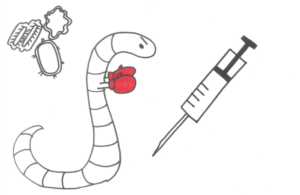
Continue reading “Winning research – Zoology storms the Lightning Talks”
School of Natural Sciences Postgraduate Symposium 2016: Part 3/3
![image[3]](http://www.ecoevoblog.com/wp-content/uploads/2016/04/image3-300x300.jpg)
Aoibheann Gaughran (@Aoibh_G)
Supervisor: Nicola Marples
Title: How population density influences social mammal ecology: A case study of the European badger.
The local density of a population of social mammals can affect many aspects of its ecology including social structure, mating systems, dispersal behavior, territorial behavior and the dynamics of disease. Scientists and policy-makers need a comprehensive understanding of the local population density as this may dictate the most effective management strategy. The European badger provides a particularly good species to investigate the effects of population density on other density parameters because its density varies by orders of magnitude across its wide geographic range. Further, it acts as a wildlife reservoir for bovine tuberculosis in the UK and Ireland, where it is subject to control operations. Currently, a haphazard classification of local population densities hampers a clear understanding of the badger’s ecology, leading to inappropriate management systems. We have conducted a meta-analysis to investigate the relationships between social group size, territory size, and group density and population density in badgers. We demonstrate that population density fundamentally alters badger ecology, affecting the interactions both within and between social groups. We also propose a classification system for densities of the European badger which highlight important ecological differences between populations across the density spectrum. Our findings provide a more cohesive picture of the species’ ecology across its range, facilitating appropriate targeting of disease management and conservation regimes.
Michelle McKeon-Bennett
Supervisor:Trevor Hodkinson
Title: Characterisation of endophytic microbes within Sphagnum magellanicum from Clara Bog, County Offaly, Ireland: Implications for enclosed environment hydroponic systems in Space.
This work investigates potential mutualistic relationships between endophytic microbes and species of native Sphagnum moss sampled from Clara Bog, County Offaly, Ireland. The application of the ion-exchange ability of Sphagnum moss to water remediation and recourse recovery within an enclosed hydroponic system has been investigated by the author at NASAs Space Life Science Laboratory, Kennedy Space Centre, Florida. While this research indicated that Sphagnum could be utilized in this manner, it resulted in yet more questions, specifically in relation to microbial interactions and growth mechanisms within the Sphagna:plant test bed.
It is postulated that endophytic microbes growing mutualistically within S. magellanicum may be responsible for (a) anti-algae and anti-microbe effects within the hydroponic system and (b) increased nutraceutical content within the associated salad crop. Microbial DNA isolated from 100ug samples of S. magellanicum, was extracted and used to identify microbial endophytes using standard barcoding primers. Genetic fingerprinting is being utilised to type the endophytes. Isolation and culturing protocols from Sphagnum plants have been developed and applied for the characterisation of microbial species during hydroponic systems using S. magellanicum as a growth medium. Further investigation of mutualism between identified endophytes and a cultivar of Lactuca sativa known as ‘Lollo Rosso’ is ongoing.
Alex O’Cinneide
Supervisor: Anna Davies & Martin Sokol
Title: The effectiveness of renewable energy policies in encouraging renewable energy generation.
Over the last twenty years the EU and its individual countries have been engaged in implementing policies to increase the use of renewable energy (RE) as a generation source. Motivations for this support of RE generation include, but are not limited to, concerns over climate change and pollution, national security risks associated with fossil fuels, and a wish to increase the competitive position of RE in markets which have been traditionally dominated by carbon based power. The issue of climate change and renewable power’s role in addressing this complex challenge has, in particular, been brought into sharper focus following agreement on emissions pledges from all the EU countries, and a new target of keeping global warming below 1.5C in December 2015 in Paris at COP 21; targets which will require a material response by policy makers throughout the EU. An understanding of what policies have been most effective in increasing RE is therefore critically important in designing new schemes, a comprehensive analysis of which has not been completed to date. I am therefore conducting a comparative analysis of the effectiveness of RE policies in encouraging RE generation (solar and wind, which given their advantages in cost and deployment have been the dominate focus of policy) across the EU from 1995 to 2015, with a primary focus on four countries of contrasting contexts, Ireland, UK, Italy and Portugal. While several studies have attempted to determine the effectiveness of various policies in various countries, these have been limited in scope and have not attempted to account for the variety of policy design features or individual country, market and key actor characteristics that influence policy strength. Adopting an energy transitions theoretical framework, this research would constitute the first study undertaken to determine how policy has effected the growth of renewables across Europe.
Anne Dubéarnès
Supervisor: John Parnell & Trevor Hodkinson
Title: Systematics of the genus Embelia Burm.f. (Primulaceae – Myrsinoideae)
Within the Primulaceae family, the Myrsinoideae form a highly variable tropical group, ranging from climbers and shrubs to trees, and characterised by the presence of dark dots on the leaves and fruits. This subfamily contains over 1300 species, divided into approximately 40 genera. Many of these genera are in need of taxonomic revision, as their limits are poorly defined and sometimes rely on ambiguous characters. Among these genera is Embelia, a genus of climbing shrubs distributed mostly in South and South-East Asia, tropical Africa and Madagascar. Embelia displays extensive morphological variation – especially regarding the position, shape, size and merosity of the inflorescences and flowers. It is distinguished from other Myrsinoideae only by the climbing habit, and the relationship with morphologically similar genera has not been critically evaluated yet. The last monograph of Embelia by Mez (1902), recognised eight subgenera and 92 species, but the total number of species is currently estimated at 150-200, and the subgenera used by Mez must be assessed and refined. My project aims to combine morphological and molecular data in order to test the monophyly of Embelia and to provide a taxonomic framework of the subgenera.
Eoin Mac Réamoinn
Supervisor:Cliona O’Farrelly & Paula Murphy
Title: Toll-Like Receptor Gene Expression During Early Murine Embryonic Development.
Toll-like receptors (TLRs) are renowned for their fundamental roles in immunological surveillance and response initiation. While TLR proteins in invertebrate species, such as Drosophila, carry out functions in the immune system and in “building” the body plan in the embryo, such non-immune functions have not been thoroughly investigated in mammals. Although TLR genes have duplicated independently in these lineages, and may therefore have diverged in aspects of their functionality, limited studies have recently reported the expression of TLRs in the developing mammalian embryo (Kaul et al., 2012). We report a systematic study of Tlr gene expression in early to mid-gestational murine embryos using whole-mount RNA in situ hybridization and 3D imaging (using Optical Project Tomography), the combination of which has allowed us to record the precise tissues and stages at which these genes become expressed. We have found that the expression of these receptors is particularly enriched within the central nervous system with many Tlrs displaying complementary expression patterns in developing neural tissues, as is the case with Tlrs -1, -5, -6, and -7 in the neural tube at embryonic day 10.5. These findings are in line with experimental data showing that Tlrs -2, -3, and -4 can influence neural progenitor cell proliferation and self-renewal (as reviewed in Barak et al., 2014). In addition to the expression data we have generated, whole-transciptome data is being mined to build a comprehensive picture of Tlr activity during embryogenesis and will aid in the building of specific hypotheses for functional testing.

